During the Food Safety Action Month 2025, we will focus on inspecting collective kitchens - Photo: QUANG DINH
From April 15, the whole country will enter the Month of Action for Food Safety in 2025. This is also the peak period of hot weather, causing the risk of poisoning to increase if there are no preventive measures.
Three consecutive mass food poisoning cases
Most recently, on April 10, 22 students at Vo Thi Sau Primary School (District 7) were suspected of food poisoning when they showed symptoms such as vomiting, diarrhea, and abdominal pain, one of whom had to be hospitalized.
Initial information shows that the school has a contract with an industrial catering unit to serve meals for boarding students. The school has sealed the food samples, the Ho Chi Minh City Food Safety Department has taken food samples from the school and specimens for testing, and also inspected the school's food supplier.
Previously, on March 28, the Food Safety Department ( Ministry of Health ) also requested the Food Safety Department to clarify the suspected food poisoning incident that occurred at Tue Duc Secondary School (campus 1/5 bis Luong Dinh Cua Street, An Khanh Ward) and Tue Duc Secondary School (campus 644 Nguyen Thi Dinh Street, Thanh My Loi Ward). Of which, 33 students showed symptoms of abdominal pain, diarrhea, and nausea after eating school meals provided by the same company in Tan Phu District.
Three days later, the Food Safety Department continued to request the Ho Chi Minh City Food Safety Department to clarify the cause of the suspected food poisoning incident caused by eating bread that hospitalized 37 people, including 33 students. These people were drivers, teachers and students of Tan Tuc Secondary School, Binh Chanh District, who bought bread to eat and then suffered from poisoning symptoms.
A representative of the Department of Food Safety said that the results of the test on the cause of the poisoning are still being processed. Speaking to Tuoi Tre , Ms. Pham Khanh Phong Lan, director of the Department of Food Safety, said that from April 15 to May 15, the department will establish inspection teams to conduct inspections at food production, processing, and trading establishments, and food service establishments.
Especially collective kitchens, food services, food production, processing, and trading. Thereby, organizations, individuals, production and business establishments that violate regulations will be strictly handled, especially collective kitchen food service establishments, and street food.
Ms. Lan also called on people to improve their capacity to prevent and proactively handle food poisoning and food-borne diseases; and minimize poisoning caused by consuming unsafe food.
Concerns about communal kitchens
Yesterday (April 11), the Food Safety Department issued details on the implementation of inter-sectoral inspections during the Food Safety Action Month in 2025 with the theme: "Ensuring food safety, focusing on food safety in collective kitchens, catering services, and street food".
The Department requires localities to conduct focused and key inspections, focusing on outstanding management issues and violations of food safety in food production, trading and advertising. During the inspection process, it is necessary to focus on reviewing certificates of establishments meeting food safety conditions, commitments to safe food production, and food safety conditions for establishments producing and trading alcohol and food...
Inspection teams must handle violations when they detect them, and absolutely do not allow unsafe food to circulate on the market. Strictly handle production and business establishments that violate food safety regulations...
Associate Professor Nguyen Duy Thinh, former lecturer at the Institute of Biotechnology and Food ( Hanoi University of Science and Technology), said that collective kitchens often prepare large quantities of meals, so raw materials are often purchased for storage, making them convenient for processing. If the storage of raw materials is not ensured, it will lead to damage...
Therefore, to ensure safety in the collective kitchen, the source of input materials must be clear, limit large reserves, sign food supply contracts with reputable places. In addition, there must be a good food preservation equipment system, a clean environment, and functional forces must increase inspection and supervision.
Two ministries coordinate to increase penalties
According to Ms. Tran Viet Nga - Director of the Department of Food Safety, currently in the field of food safety, violations in the food service business, especially in ready-to-eat food processing establishments, collective kitchens, restaurants, eateries... will be handled.
The implementation of sanctions will be regulated by behavior. In which, the highest level of sanctions for individuals is up to 100 million VND, for organizations the highest level is up to 200 million VND.
Minister of Health Dao Hong Lan added that for serious acts such as producing and trading fake food, the penalty in the Penal Code can be up to 20 years in prison or life imprisonment.
Recently, leaders of the Ministry of Health and the Ministry of Public Security met to discuss increasing the level of penalties for food safety violations. Recently, the Hanoi Department of Health proposed to double the level of penalties for food safety violations compared to the level of penalties prescribed in current decrees, in order to create a strong deterrent for organizations and individuals involved in food production and trading.
The Hanoi People's Committee has just held a conference to deploy the Food Safety Action Month 2025 with the theme "Ensuring food safety, focusing on food safety in collective kitchens, catering services and street food".
The hotter and more humid the weather, the more dangerous it is.
PSG Nguyen Duy Thinh said that the hotter and more humid the weather is, the faster harmful microorganisms and bacteria grow, making food spoil easily. When entering food, bacteria grow very quickly, multiplying many times in a short time, producing toxins that cause poisoning.
For foods that are contaminated with toxins, although boiling at high temperatures can destroy microorganisms, the toxins they produce will not disappear, and there is still a risk of poisoning. Especially foods such as meat, eggs, milk, fish, seafood, pate, ham... are rich in nutrients and proteins, which are favorable environments for bacteria to grow and develop toxins.
Read moreBack to Topic Page
Back to topic
THU HIEN - DUONG LIEU
Source: https://tuoitre.vn/hang-loat-vu-ngo-doc-thuc-pham-trong-nha-truong-20250412015810138.htm


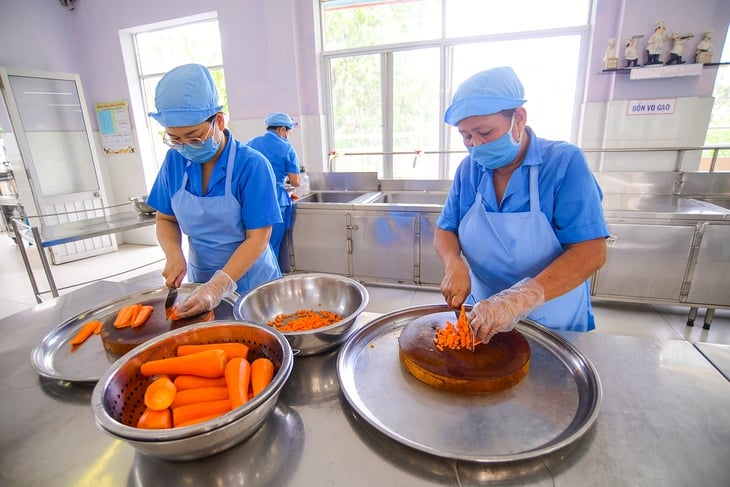








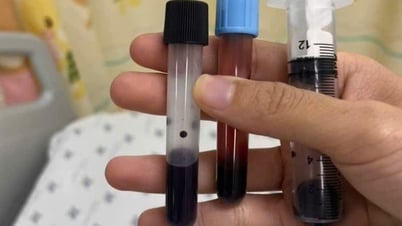

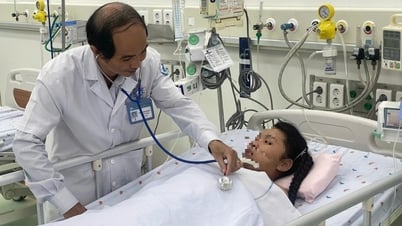


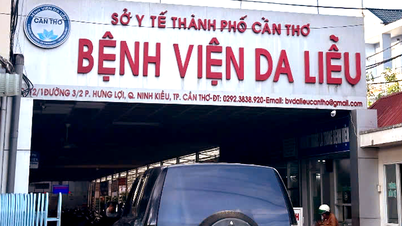



























































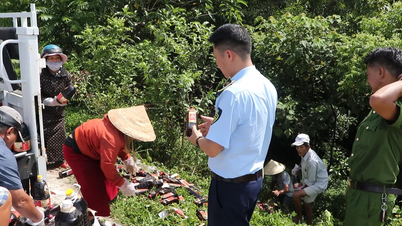













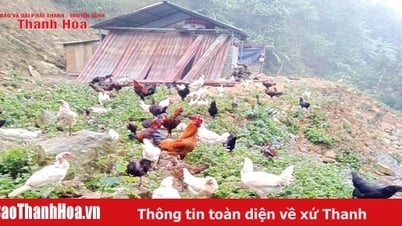






Comment (0)